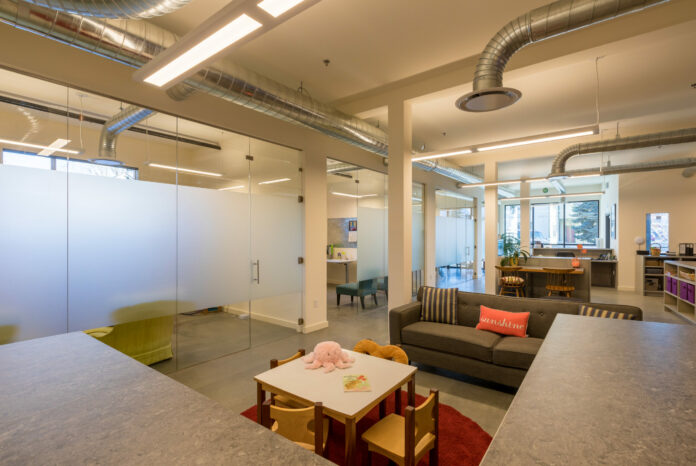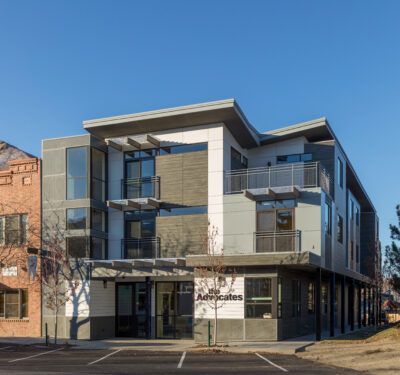
March 5 event to showcase nonprofit’s critical Valley role
By Eric Valentine

Facilities and programs set up to protect victims of domestic violence and families experiencing homelessness typically are not the setting for feel-good stories or long-term hopefulness. They are more typically temporary bastions of safety from challenges society sometimes struggles to solve or even to face. But at The Advocates in Hailey—the headquarters for providing a safe place for people affected by domestic violence, sexual assault and stalking in Blaine, Camas, Custer and Lincoln counties—positive vibes are not pollyanna.
That’s because the multiphase expansion The Advocates has been undergoing since last year is not only moving along ahead of schedule and on budget, but making a significant impact on the region, too. That difference is perhaps felt most by the people without a safe place to live due to domestic violence or other abuse who are on waiting lists for temporary housing. Last year, The Advocates’ backlog topped 20 people. Today, there are just three people waiting to take up shelter there.
“We are thrilled that the waiting list has gone down,” said Shannon Nichols, director of Development & Engagement for The Advocates.
Specifically, there are now 16 transitional housing apartments that have provided a safe place for 35 adults and 49 children to heal and move from a life of abuse to a life of freedom and independence, the organization says. Clients work with a case manager from The Advocates who helps determine what their monthly rent will be—always less than 30 percent of their income in rent. The typical range is from $50 to $600. People eligible for transitional housing need to be free from abuse, have a connection with The Advocates and be working toward their self-identified goals. Units are available to all genders and pets are welcome, too.
“Being able to expand our transitional housing is key, but so many people first need the other types of support we can provide,” Nichols said.
If These Walls Could Talk
That support Nichols refers to is broad. Founded in 1991, The Advocates offers a wide variety of services, such as life skills training, legal assistance, and safety planning. Prevention education staff teach people of all ages how to build and maintain healthy relationships through workshops on communication, bystander intervention, consent and more. And just last weekend, at the Limelight Hotel, The Advocates’ teen intern program called Every Teen Counts presented a seminar on healthy dating and relationship practices.
On March 5, The Advocates will be hosting what they are calling the “If These Walls Could Talk Orientation”—an open house, essentially, from 5:30 to 6:30 p.m., showcasing their public space that opened last year at 211 S. River Street in Hailey. Other organization properties are shelter for victims of abuse, so those locations are not made known.
“What’s unique about The Advocates building is that it’s a public office space. We don’t want to be hard to find. We don’t want people missing out,” Nichols explained. “This presentation is the first step for people who are interested in volunteering, or a great way to learn more about The Advocates and the resources that are available to people who have experienced domestic violence, sexual violence, or stalking in our community.”
